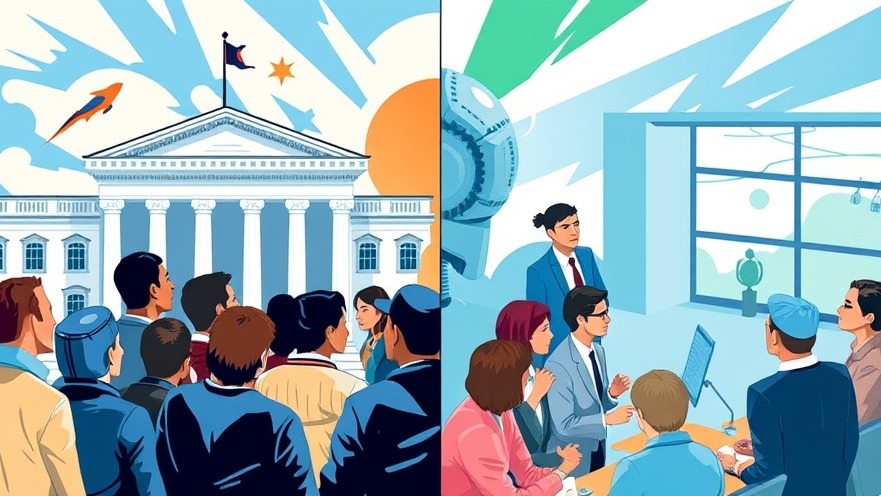
The Impact of Supreme Court Rulings on Executive Power
Recently, a pivotal Supreme Court ruling has revitalized discussions regarding the balance of power between the executive branch and Congress. For franchise brand founders, executives, and local franchise owners, understanding these shifts in governance can offer insights into how regulatory environments shape business operations. The crux of this ruling questions whether the president commands unilateral authority in executing decisions related to federal agencies or if Congress should hold sway over these critical matters.
In What This Latest Supreme Court Ruling Means For Every President, the discussion dives into the implications of a critical ruling, exploring key insights that sparked deeper analysis on our end.
Why This Ruling Matters for Franchise Leaders
This latest ruling signifies more than just a legal stance; it embodies the operational framework that defines how the U.S. government interfaces with the business world. With more than 2000 federal agencies overseeing approximately 3 million individuals, operational efficiency hangs in the balance. The ability of the president to make executive decisions without stringent Congressional oversight could streamline regulations that directly affect how franchises operate. As these governing bodies continue to grapple with outdated technologies and convoluted processes, the implications of such legislation become increasingly relevant.
Parallel Examples: Historical Context of Executive Power
To understand this ruling's significance, one can look at history. Previous administrations have navigated similarly contentious waters regarding executive power and Congress's role. The trajectory of laws like the War Powers Resolution of 1973 illustrates how presidential authority has often been tested. Today's workplaces thrive or falter based on efficiency and adaptability; thus, a clear executive pathway might be the catalyst for franchises to innovate and grow.
Technology in Franchising: A Double-Edged Sword
In today's digital age, technology serves both as a tool for growth and a source of challenges for franchise systems. The ruling emphasizes the need for efficient governance models to foster innovation. As many franchises adopt new tech—whether AI tools for marketing or streamlining operations—government regulations must evolve. This ruling might just be the precursor to a wave of tech-friendly policies, offering franchise owners a more conducive environment for adopting cutting-edge developments.
Challenges Ahead: Navigating Regulations and Growth
The effective implementation of the ruling will still depend on how Congress and the president interact in the ensuing months. The delicate dance of legislative priorities can either hinder or herald the kind of regulatory environment that encourages franchise growth. A lack of clear communication or unforeseen bureaucratic obstacles could create a problematic landscape. Thus, franchise leaders should stay attuned to these developments as they can directly affect operational freedom.
Actionable Insights: Leveraging Changes for Franchise Success
As we ponder the implications of this ruling, franchise brand founders must consider strategies to harness the potential freedom that might emerge. Keeping abreast of regulatory shifts enables businesses to pivot effectively, whether that means investing in new technologies or reviewing internal policies that align with recent legal changes. Staying proactive ensures your franchise isn’t merely reactive but strategically positioned for inevitable changes in governance.
In examining What This Latest Supreme Court Ruling Means For Every President, we witness how legislative changes can reverberate through the fabric of business practices. The trajectory set forth by judicial rulings can illuminate pathways for effective leadership within your franchise, demonstrating the necessity of adaptability in the face of evolving governance.
 Add Row
Add Row  Add
Add 




Write A Comment